If you have a backyard and some pet chickens in a coop. Caring for them is like having a mini-farm in your own space. Whether you’re new to this or have experience with chickens, we will help you ensure your chickens are happy and healthy. Even though a small chicken coop isn’t as big as a barn, it’s still important to look after them.
Chickens are not only excellent at laying eggs but also make fantastic pets. We’ll cover the basics of caring for chickens in a small backyard coop. We’ll talk about feeding them, giving them water, providing shelter, and ensuring their safety from animals.
Plus, we’ll explain how to keep their living space clean. So, whether you dream of enjoying farm-fresh eggs for breakfast or want some chickens in your backyard.
Find how to take care of your small backyard chicken coop easily.
Feed the Chicken
Taking care of your chicken coop involves a plan so that they eat well for their health and happiness. Just like us, chickens need a balanced diet to stay strong.
Here are some important things feeding for your coops:
1. Proper Nutrition
Chickens require a diverse diet to stay healthy. This diet should include grains, vegetables, and protein. A good option for providing them with the right nutrition is to give them a type of food called layer pellets. This special chicken food is designed to give them all the necessary nutrients. It’s important to check that it has calcium to help them make strong eggshells.
2. Daily Feeding
Chickens usually eat once or twice daily. To avoid food waste and keep their meals clean, use a strong feeder. Make sure the feeder stays dry and clean to prevent mold or food from going bad.
Concern for Frostbite
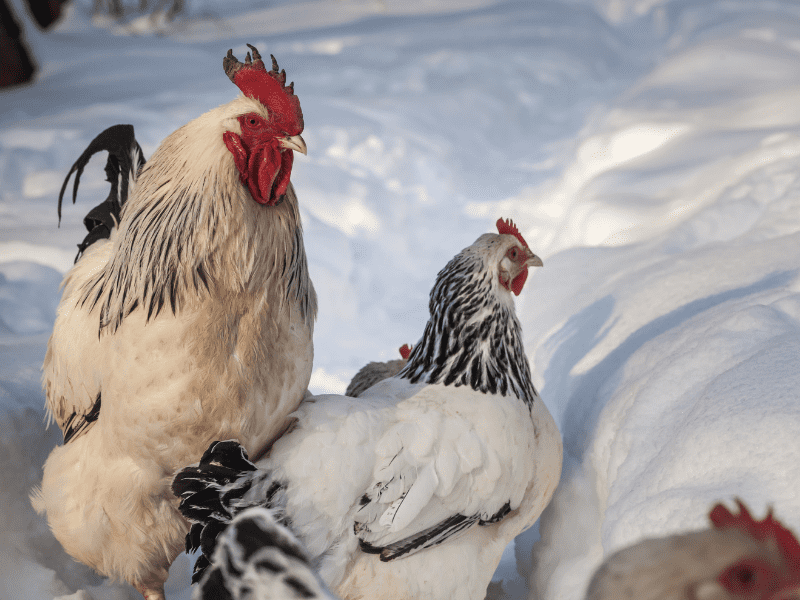
Frostbite can be a concern for backyard chickens during the cold months. Understanding how to prevent and treat frostbite is essential for their well-being.
1. Cold-Weather Preparation
Before winter arrives, make sure your coop is well-insulated and draft-free. Provide bedding material like straw or wood shavings to help keep the coop warm.
2. Frostbite-Prone Areas
Chickens can easily get frostbite on their combs, wattles, and feet when it’s very cold. To keep them safe from freezing, you can use petroleum jelly on these body parts.
Change the Water Frequently
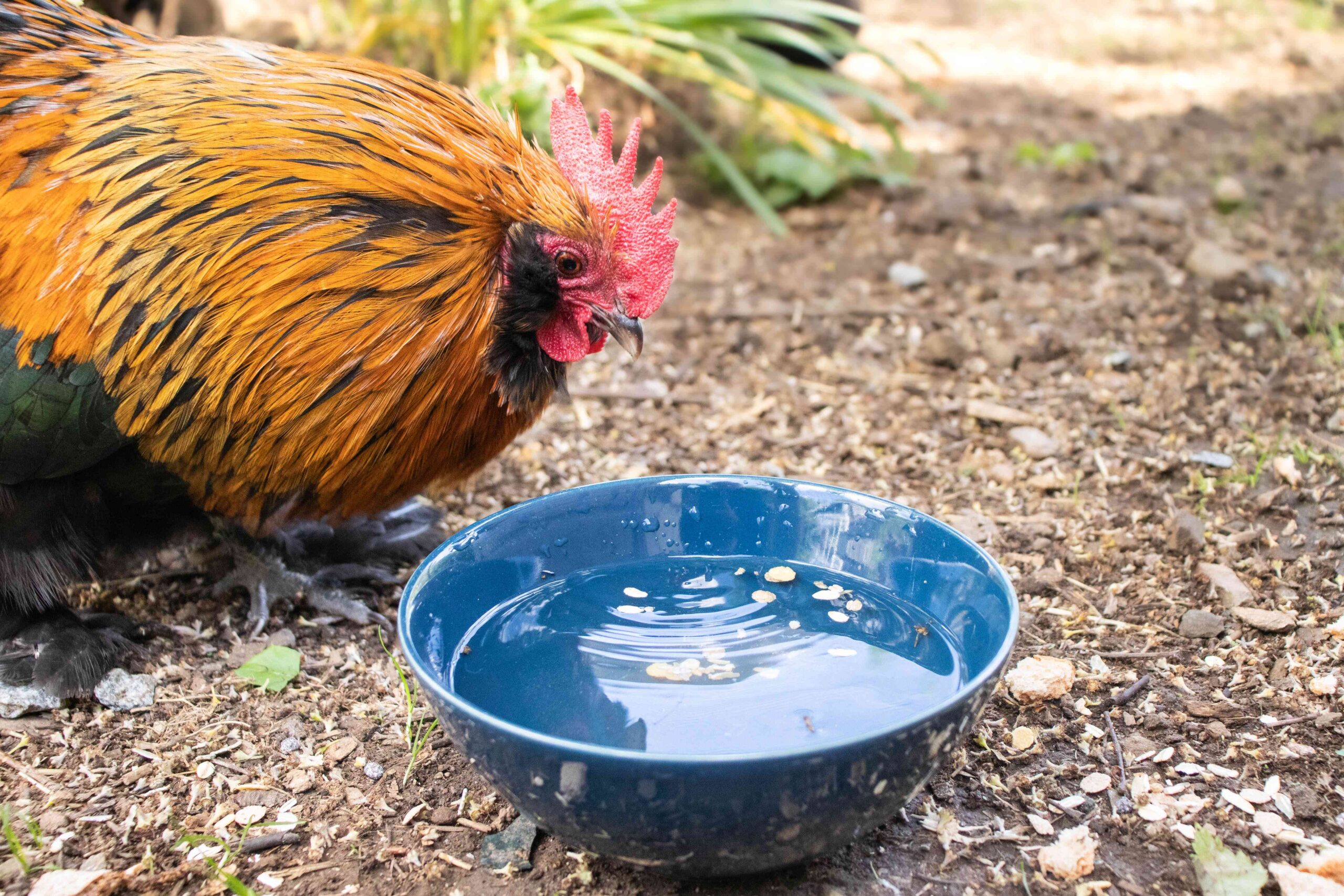
Maintaining a clean and fresh water source is crucial for the health of your chickens. Here’s why it’s important and how to do it.
1. Hydration
Chickens need water for digestion, egg production, and temperature regulation. Dehydration can lead to health problems, so ensure their water is always available.
2. Prevent Contamination
Chickens can be messy drinkers, so their water can become dirty quickly. Check the water daily and clean it as needed to prevent bacterial growth.
Proper Hygiene
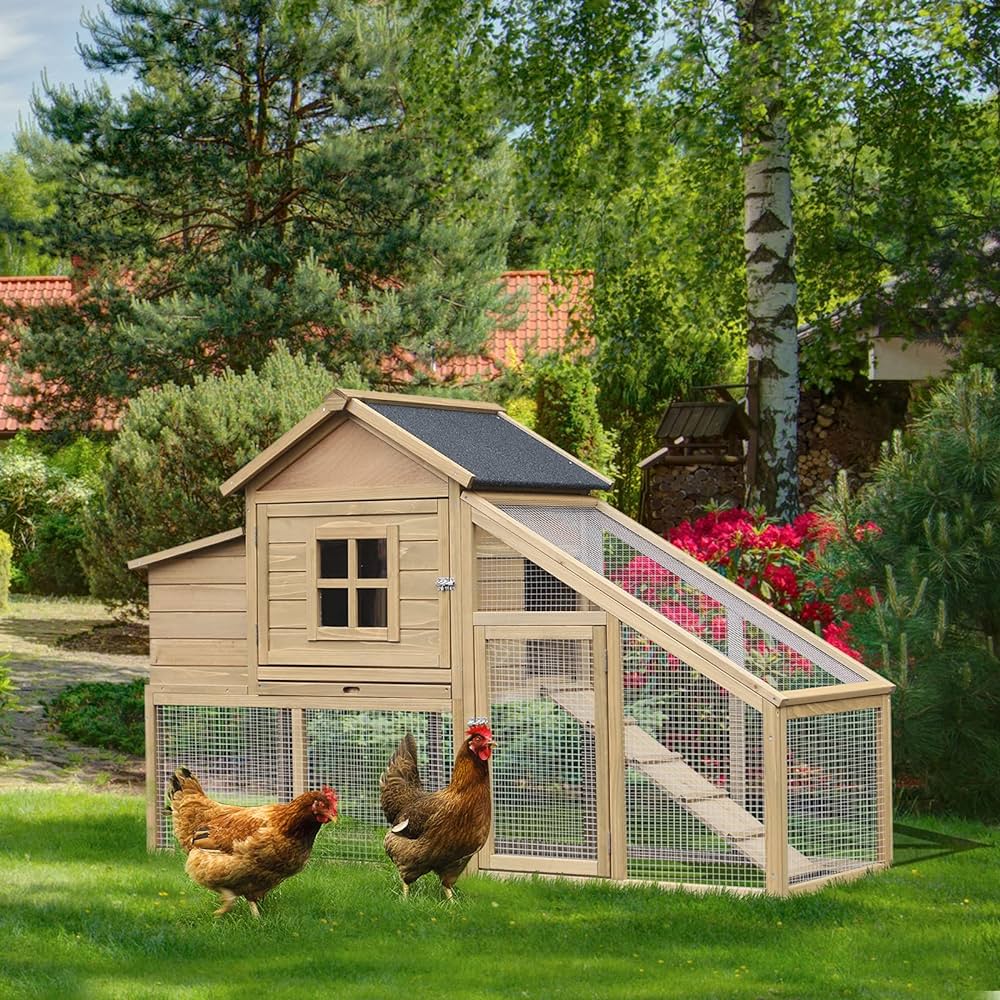
Taking care of the hygiene in your small backyard chicken coop is essential to ensure health and well-being.
1. Regular Cleaning
Make it a routine to clean the coop at least once a week. Remove soiled bedding, droppings, and any leftover food. A clean environment helps prevent the buildup of harmful bacteria.
2. Proper Bedding
Use appropriate bedding materials such as straw, wood shavings, or hay. Replace it as needed to keep it dry and comfortable for the chickens. Clean and dry bedding reduces the risk of disease.
Enhanced Security
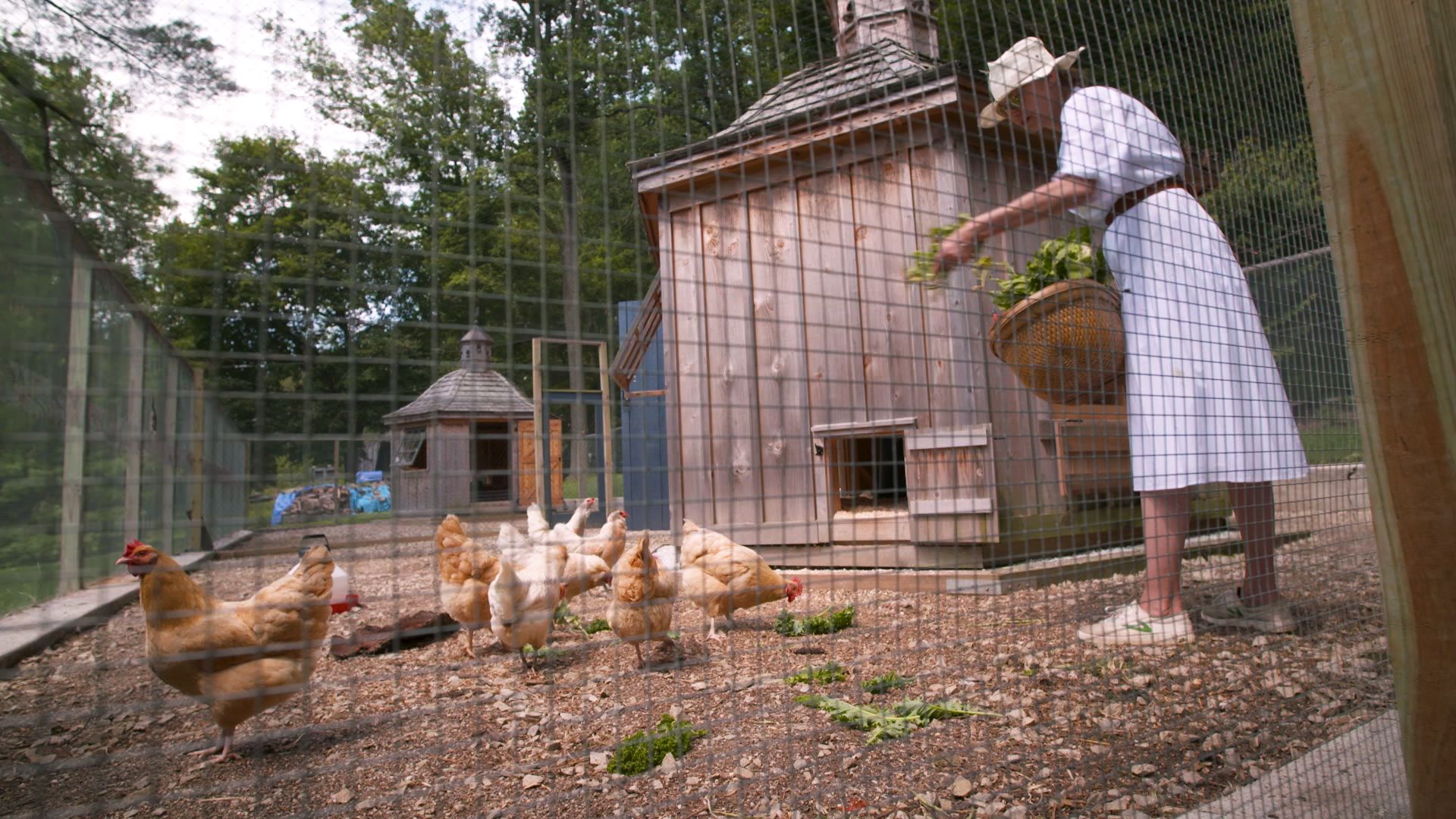
Keeping your small backyard chicken coop secure is crucial to protect your chickens from predators and ensure their safety. There are some key points to consider. Learn how “small chicken coop plans” can be effective for breeding chickens in our comprehensive guide.
1. Strong Fencing
Use strong fencing to enclose the coop area. Combining wire mesh and buried fencing can deter digging animals like foxes and raccoons.
2. Lockable Doors
Install lockable doors on the coop to keep out nighttime visitors. Animals are most active at night, so secure doors and latches are essential.
Light and Egg-Laying
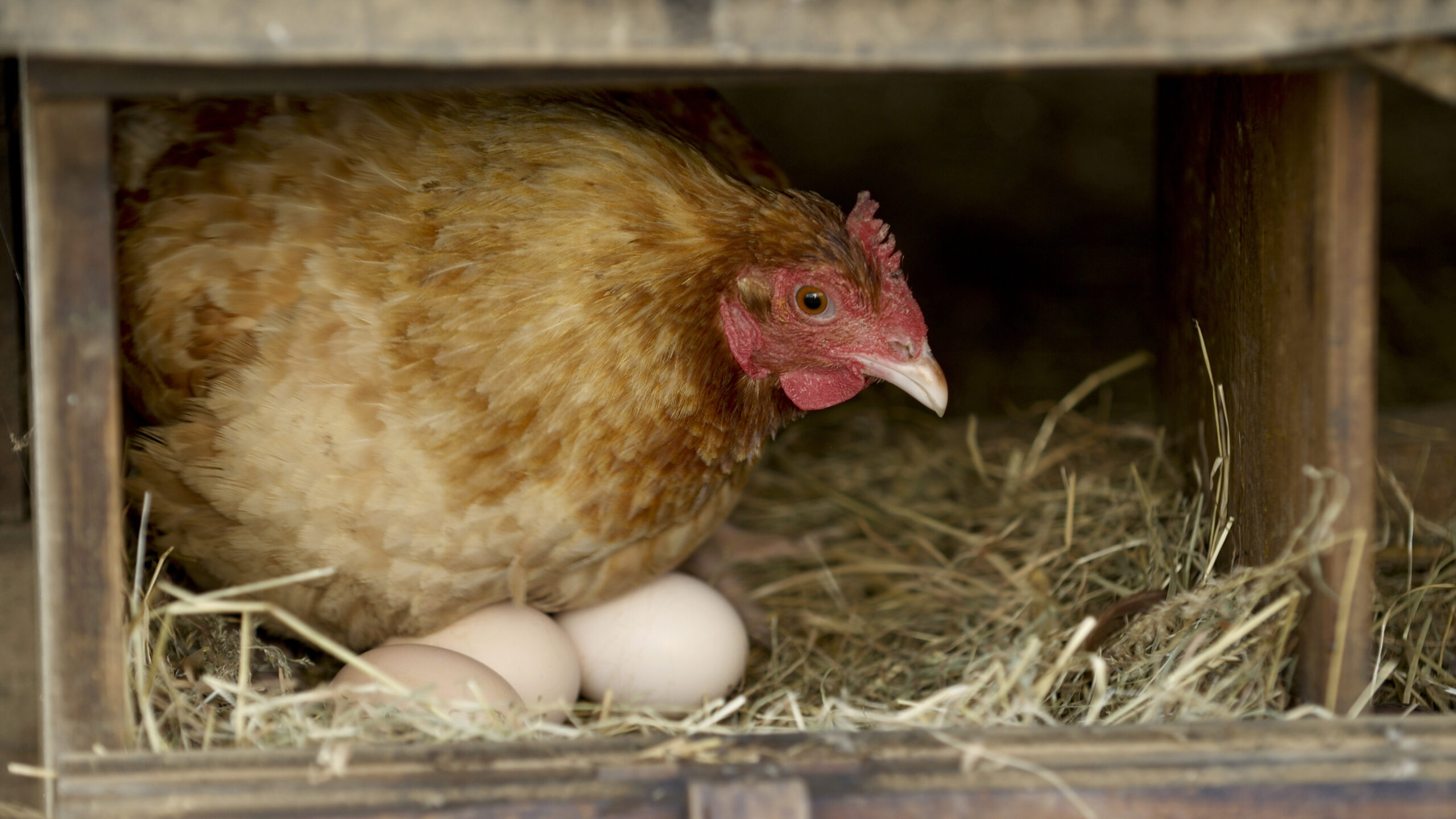
To make sure your backyard chickens stay healthy and lay lots of eggs, you need to provide them with the right amount of light. Chickens love having a routine, and their ability to lay eggs depends on how much light they get each day.
To keep them laying eggs consistently, you should try to give them about 14-16 hours of light every day. In the shorter days of fall and winter, you can use artificial lights in their coop to compensate for the missing daylight.
You can use a timer to do this automatically, so you don’t have to worry about it. Natural sunlight is also important. Make sure your coop has windows or openings that let sunlight in during the day.
Observe the Chickens

Observing your chickens is an important aspect of caring for them. It helps you spot and fix any problems early on. Spend time with your chickens daily and watch how they act around each other and their surroundings.
Healthy chickens are lively, curious, and enjoy being with others. They should be walking around, pecking for bugs, and doing regular chicken things. Keep looking at their feathers for any tiny bugs or other pests, and check their feet for injuries.
Also, make sure their egg-laying habits stay the same. This way, you can keep your chickens happy and healthy.
Conclusion
Taking care of a small backyard chicken coop is rewarding. To ensure your chicken’s well-being and happiness, remember to keep their living space clean and comfortable. Provide them with fresh water and nutritious food, and regularly check their health. Protect them from animals and offer them friendship.
Chicken coops aren’t just about fresh eggs. They can also become beloved members of your family. By giving them care and attention, your coop can be a place of joy and fulfillment, offering not only delicious eggs but also the pleasure of their company. Looking after your small backyard chicken coop is a delightful and satisfying experience.
Your Chicken coops will grow under your care, and you’ll enjoy the numerous benefits they bring to your home and life.
Be sure to check out these other posts for more fascinating insights:

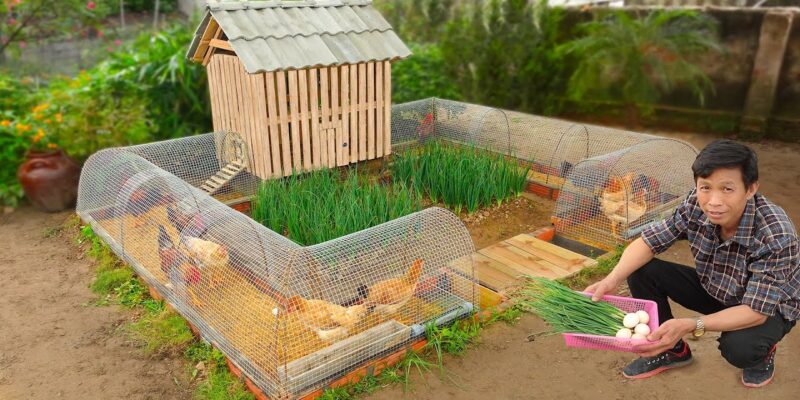


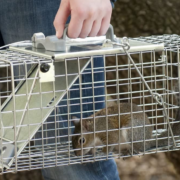





Comments